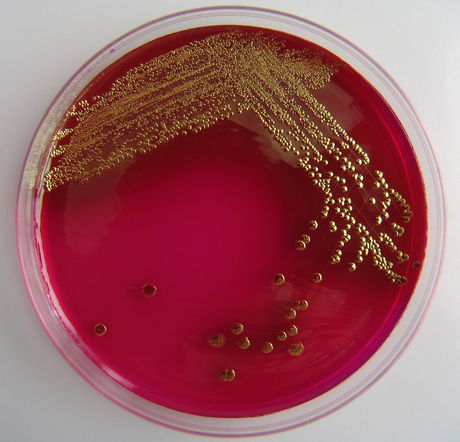Automated plate assessment system exceeds expectations

Shares in LBT Innovations (ASX:LBT) rose almost 20% today as the medical technology company received successful results from a clinical trial of its culture plate analysis technology.
Taking place at TriCore Reference Laboratories, New Mexico, the trial tested LBT’s Automated Plate Assessment System (APAS) against a panel of three microbiologists. The results showed that APAS achieved over 98% sensitivity in its detection of disease-causing bacteria on two of the most widely used culture media — blood agar and MacConkey agar — in urine samples from 5500 patients.
The trial analysed samples from the broad cohort of patients over 10 weeks between June and August 2015. Following incubation, the culture plates were processed by APAS and simultaneously assessed by the three independent qualified microbiologists. The results of the trial included:
- greater than 98% sensitivity in the detection of microbial growth on blood agar, with a 95% confidence interval width in the order of 1%. The study successfully met the set target of 96%.
- greater than 99% sensitivity in the detection of microbial growth on MacConkey agar, with a 95% confidence interval width in the order of 0.5%. The study successfully met the set target of 96%.
- greater than 98% sensitivity in the detection of microbial growth for the whole sample, with a 95% confidence interval width of around 0.5%. The study successfully met the set target of 96%.
- greater than 96% sensitivity for the segmentation of cases with microbial growth typical for urinary tract infections (UTIs), with a 95% confidence interval width in the order of 1%. The overall specificity was around 90%; when there was no growth at all, the specificity was around 98%.
- greater than 98% sensitivity for the detection of microbial growth typical of E. coli, the cause of up to 86% of UTIs in the US and Europe.
All of the primary endpoints were exceeded in the trial, which forms part of LBT’s 510(k) de novo submission to the US FDA. APAS achieved an overall sensitivity of more than 96% in its ability to combine the results from blood agar and MacConkey agar in assessing the presence of bacteria commonly associated with UTIs.
The trial also achieved a number of secondary endpoints regarding APAS’s differentiation and classification of clinical results, with important implications for the automated reporting and integration of patient results with laboratory and hospital information systems.
“The results of this major trial far exceeded our expectations and confirm that our ground-breaking technology can match the performance of a highly trained microbiologist,” said LBT CEO Lusia Guthrie. “The fact that APAS rated so well shows that LBT’s technology can be relied upon to replace a repetitive process that accounts for thousands of man hours in laboratories around the world.”
Having completed earlier trials in Australia, LBT is currently awaiting the results of a small trial in Sydney, which will provide the final series of clinical results required by the FDA for consideration of a Class 2 Medical Device. LBT will complete its 510(k) de novo submission to the FDA for the manual version of APAS by the end of 2015, with a robotic plate-handling system currently being developed in Europe.
LBT Innovations (ASX:LBT) shares were trading 19.05% higher at $0.125 as of around 1 pm on Wednesday.
Mini lung organoids could help test new treatments
Scientists have developed a simple method for automated the manufacturing of lung organoids...
Clogged 'drains' in the brain an early sign of Alzheimer’s
'Drains' in the brain, responsible for clearing toxic waste in the organ, tend to get...
World's oldest known RNA extracted from woolly mammoth
The RNA sequences are understood to be the oldest ever recovered, coming from mammoth tissue...



